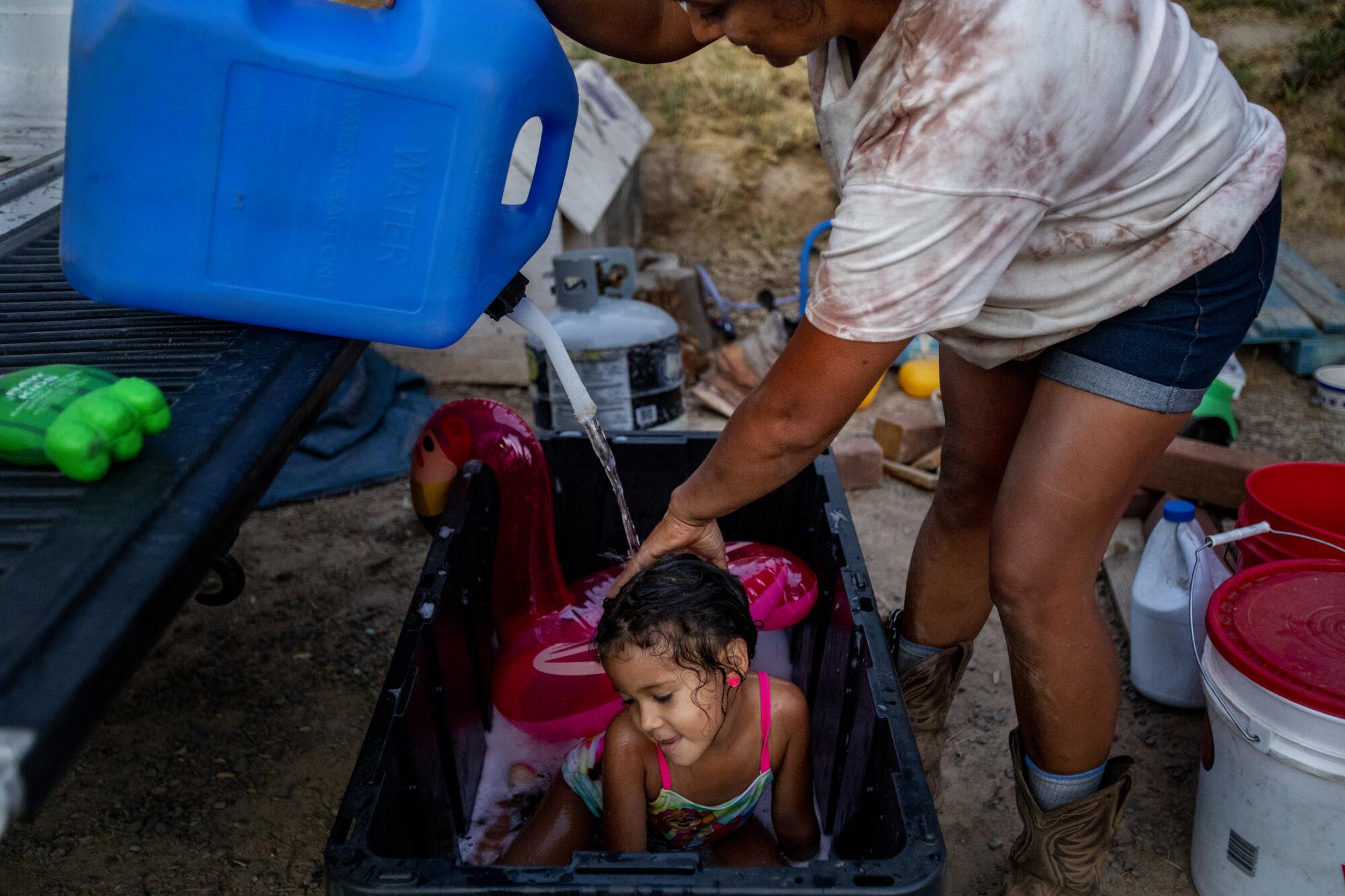
- Share via
BUTTE COUNTY, Calif. — The nomads of Butte County must hide or keep moving — scope out a little wooded draw to park a trailer unnoticed, head down the mountain to rotate between driveways in Chico, or bivouac in tents deep in the Cascade foothills.
The Camp fire displaced roughly 50,000 people in 2018, and many are still living in limbo, off the grid and out of compliance, as the nearby Dixie fire stirs up smoke and the past all over again.
Inez Salinas, a single mother, is raising her 5-year-old daughter, River, in a 160-square-foot “tiny house” trailer. She owns her land but doesn’t have a permit to camp there. Even if she did, she’s on notice that she has to leave by the end of the year unless she installs a well and septic tank, and gets designs and applies for a permit for a permanent home. She figures to get to that point would cost her $40,000. She’s struggling just to keep gasoline in her generator to run two box fans on 95-degree days.
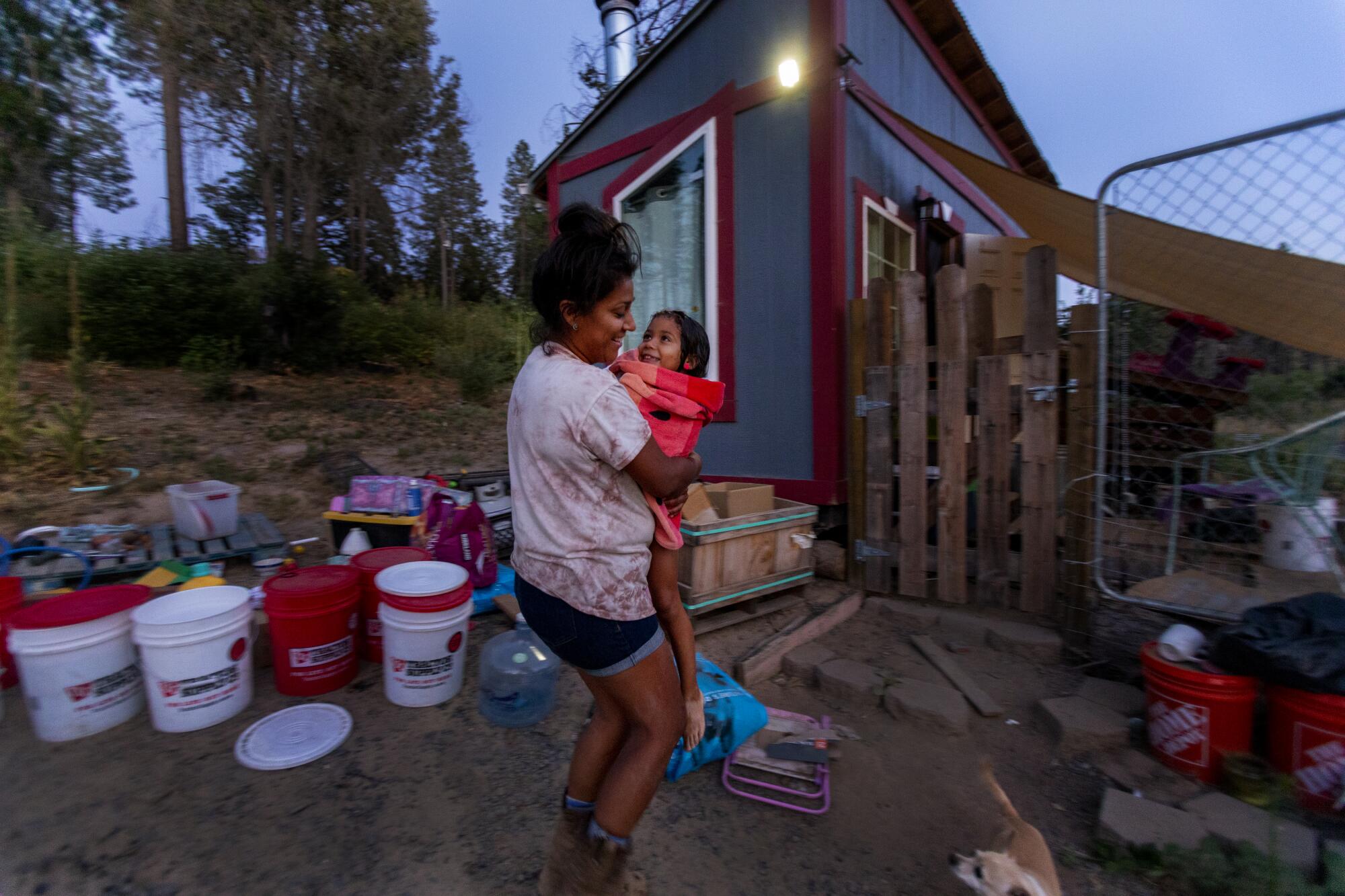
Salinas, 36, is racked with guilt for surviving a fire that killed 85 people. And she is terrified of being evicted. A neighbor has called code enforcement on her several times, but so far the officers have been sympathetic and let her off with a warning. She prays every day they don’t come back.
“I have off-the-charts anxiety,” Salinas said. “I feel like a failure as a mother that my daughter doesn’t have basic needs.”
The Camp fire most notoriously tore through the town of Paradise, but half the people who lost their homes were deeper in the woods, in poorer, more isolated places on the buttes, such as Concow, Jarbo Gap, Pulga and Yankee Hill. Many had no fire insurance. They often lived up dirt roads in houses that were built without proper permits. Some had no electricity or running water.
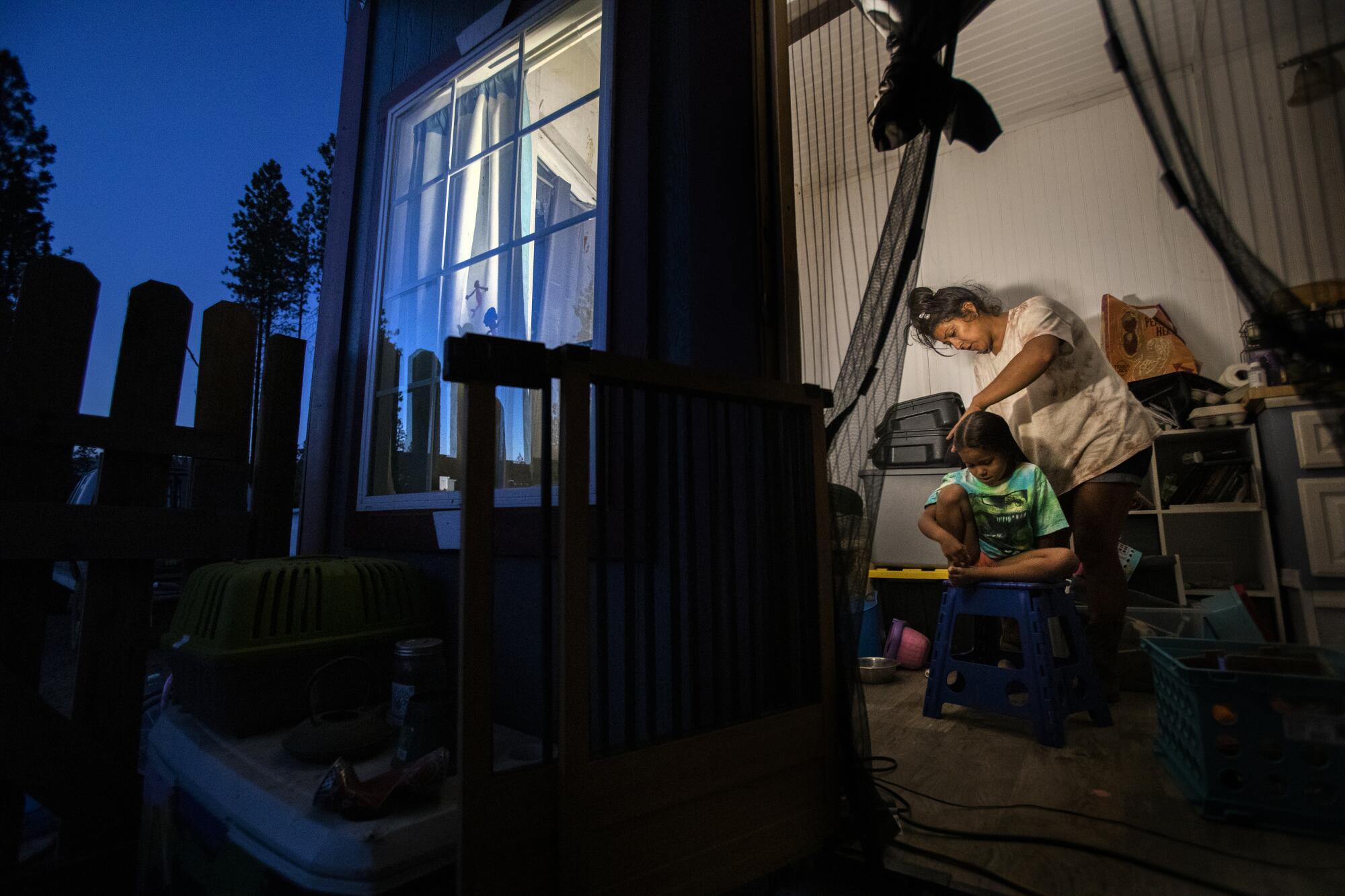
In September, the North Complex fire destroyed Berry Creek, a similar community across the North Fork Feather River, killing 15 residents of the area and displacing thousands more.
The disasters, fueled by drought and heat linked to climate change, effectively flushed backwoods people into a modern world of strict building codes and high costs they couldn’t afford.
The most vulnerable of them don’t fit well in the confines of flatland society. Many simply feel claustrophobic in the city.
“We’re hillbillies up here,” said Mike Nimz, 57, who has lived “on the mountain” for most of his life.
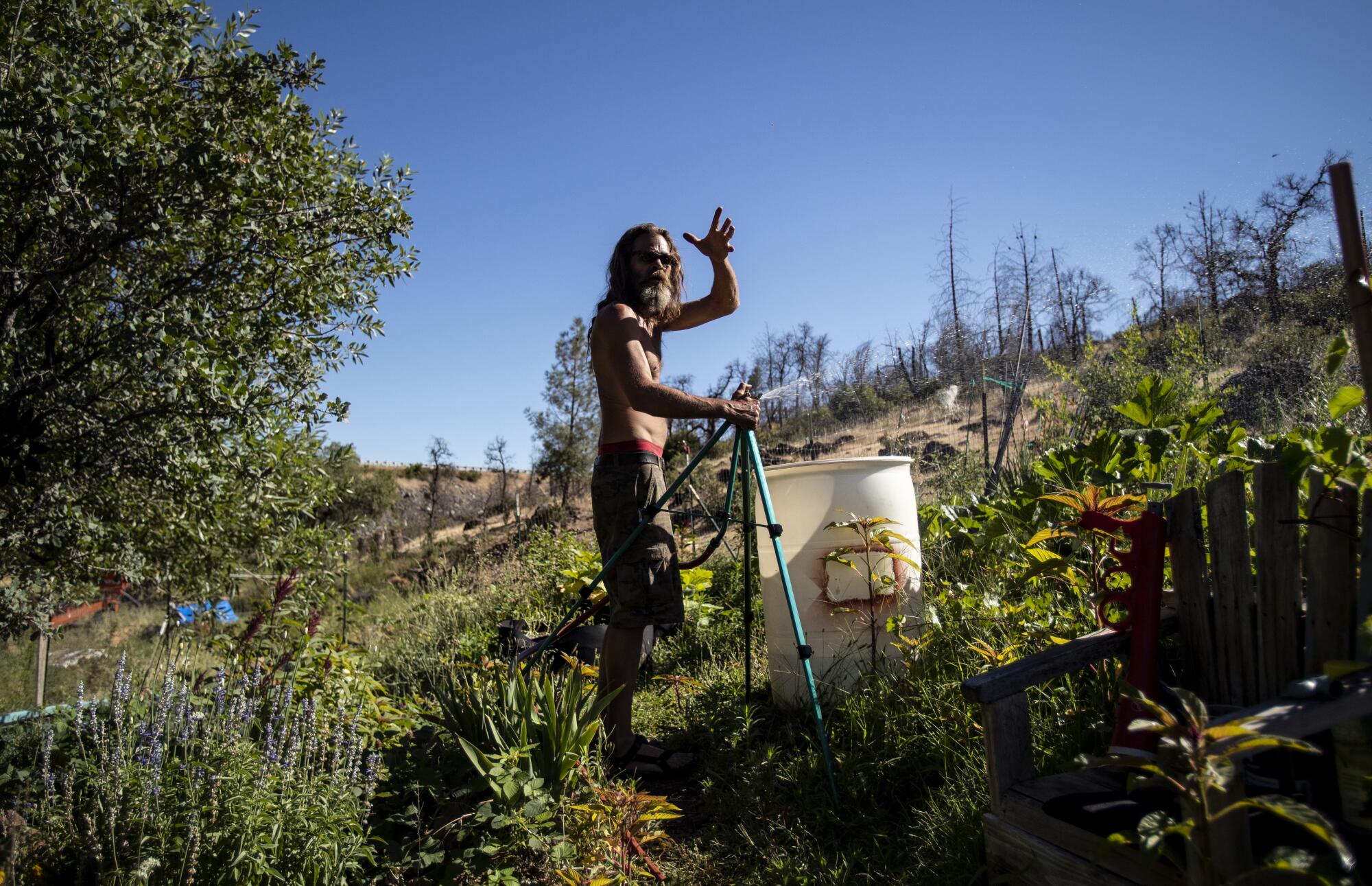
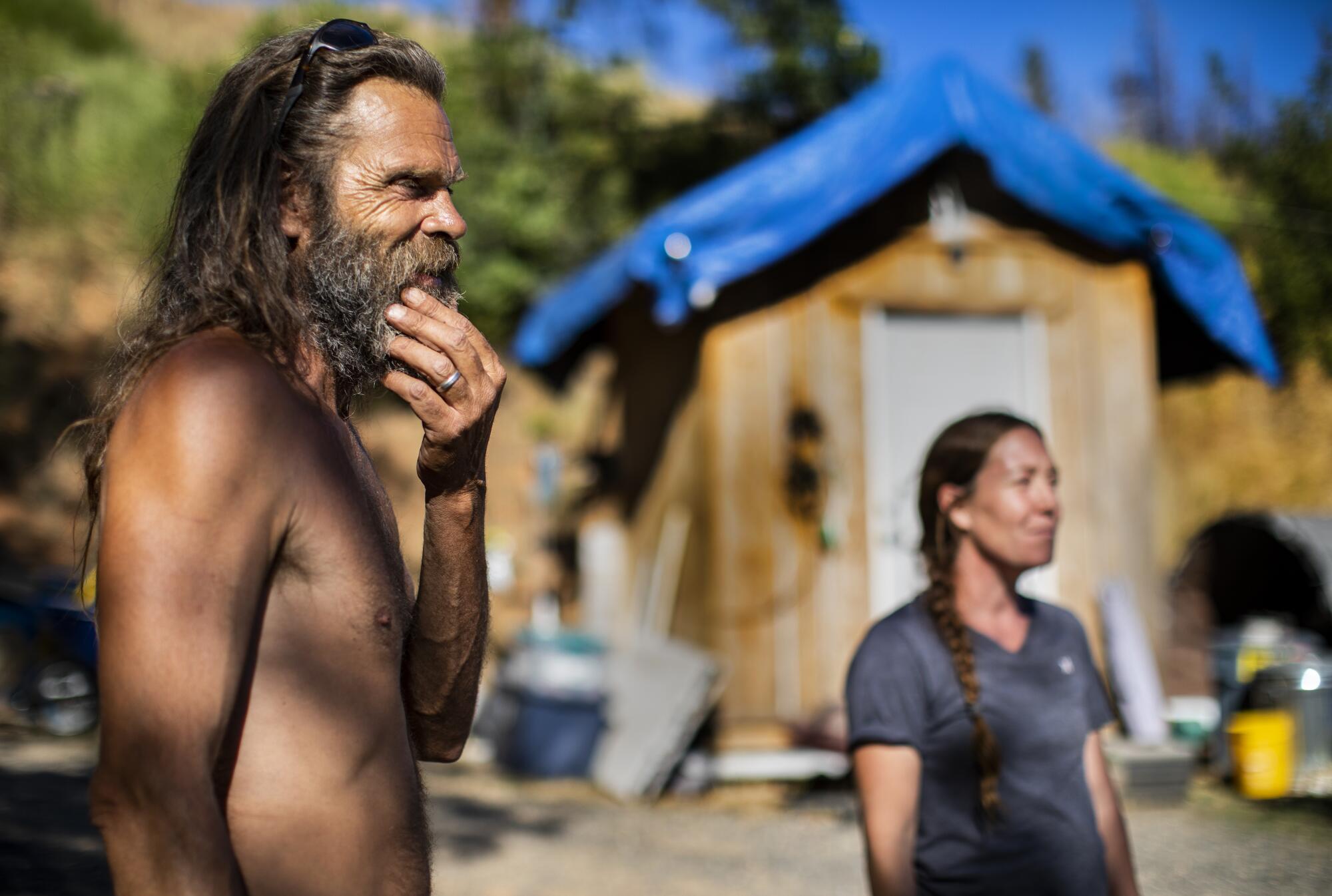
Nimz is a “bootstrap” general contractor with a wiry build, a grizzled beard and a fierce distrust of government that is a common sentiment up here. He’s been burned out twice before and landed on his feet just fine. But more than 2½ years after the Camp fire, he’s stuck, living on soon-to-expire permits in a 20-foot trailer with his wife and 15-month-old daughter.
When the state declared the entire burn zone a public health hazard, he had to wait two years for FEMA contractors to clean his three-acre property — including demolition of two concrete foundations, which he said was ridiculous. Until the crews were done, Nimz couldn’t move any debris on his property or live within 100 feet of it, meaning he had to park his trailer on a bald, sun-blasted spot next to Highway 70, where he remains today.
He’s waited even longer for PG&E to put up a power pole for the permit he pulled to camp on his property, so he doesn’t have to spend $600 a month on gas running his generator. He says he was last promised it would be up this past March.
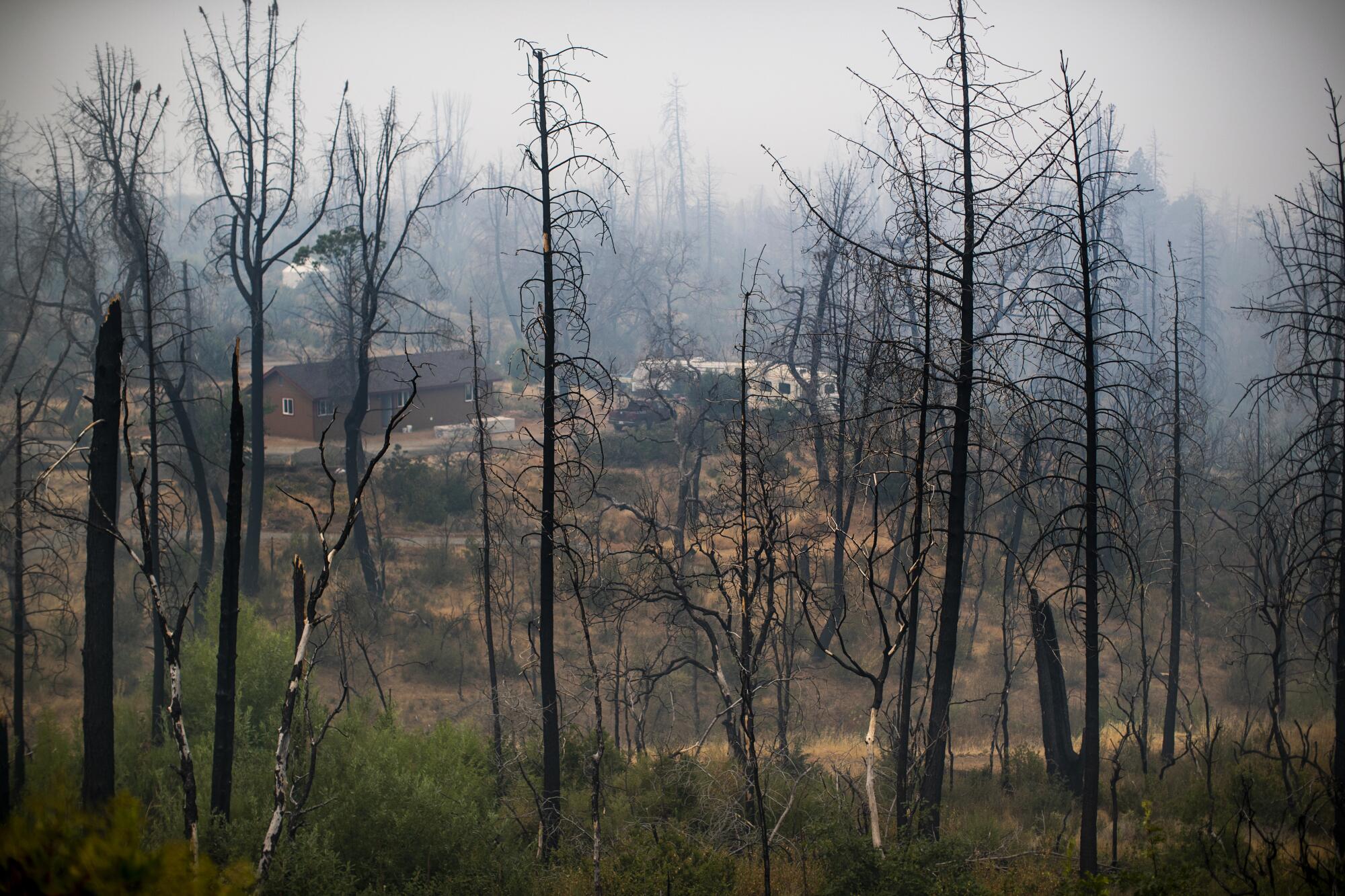
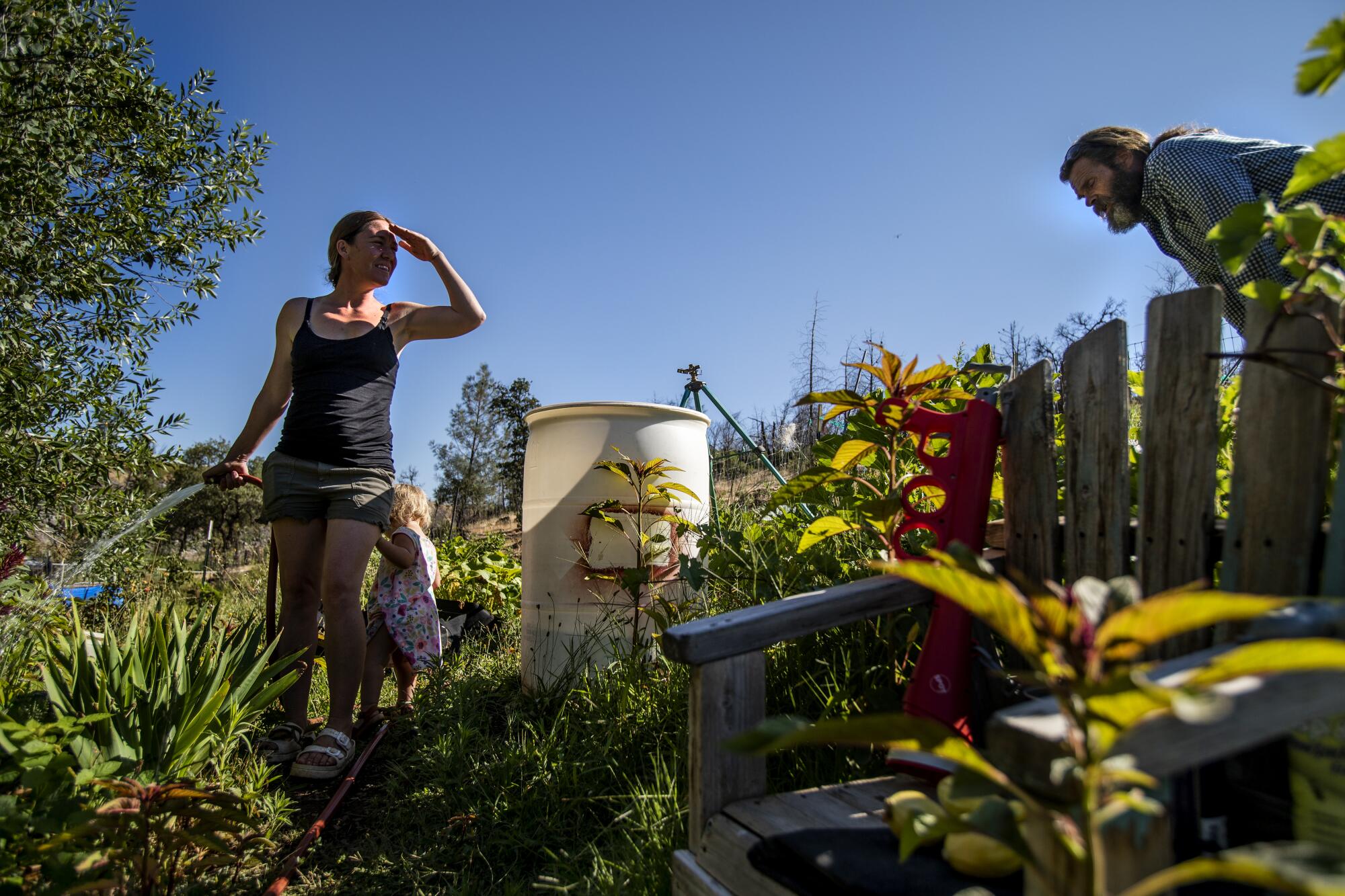
“That’s a wonderful fiasco,” he said. “I got to keep my air conditioner running on these 95-degree days so my daughter doesn’t stroke out.”
His only hope is a substantial payout from PG&E, whose poorly maintained transmission line started the fire. The utility agreed to put $13.5 billion into a trust for victims of the Camp fire, the 2017 North Bay fires and a 2015 fire in Butte County. But as of April the trust reported it had paid out only $195 million, about 1.4% of what it pledged. Nimz didn’t know anyone who received more than small preliminary payments.
So he waits. He stalks around his property, avoiding the tight confines of the trailer, playing with his daughter, watering the garden, milling felled logs and rolling endless cigarettes of Bali Shag tobacco.
Rebuilding has never been this slow.
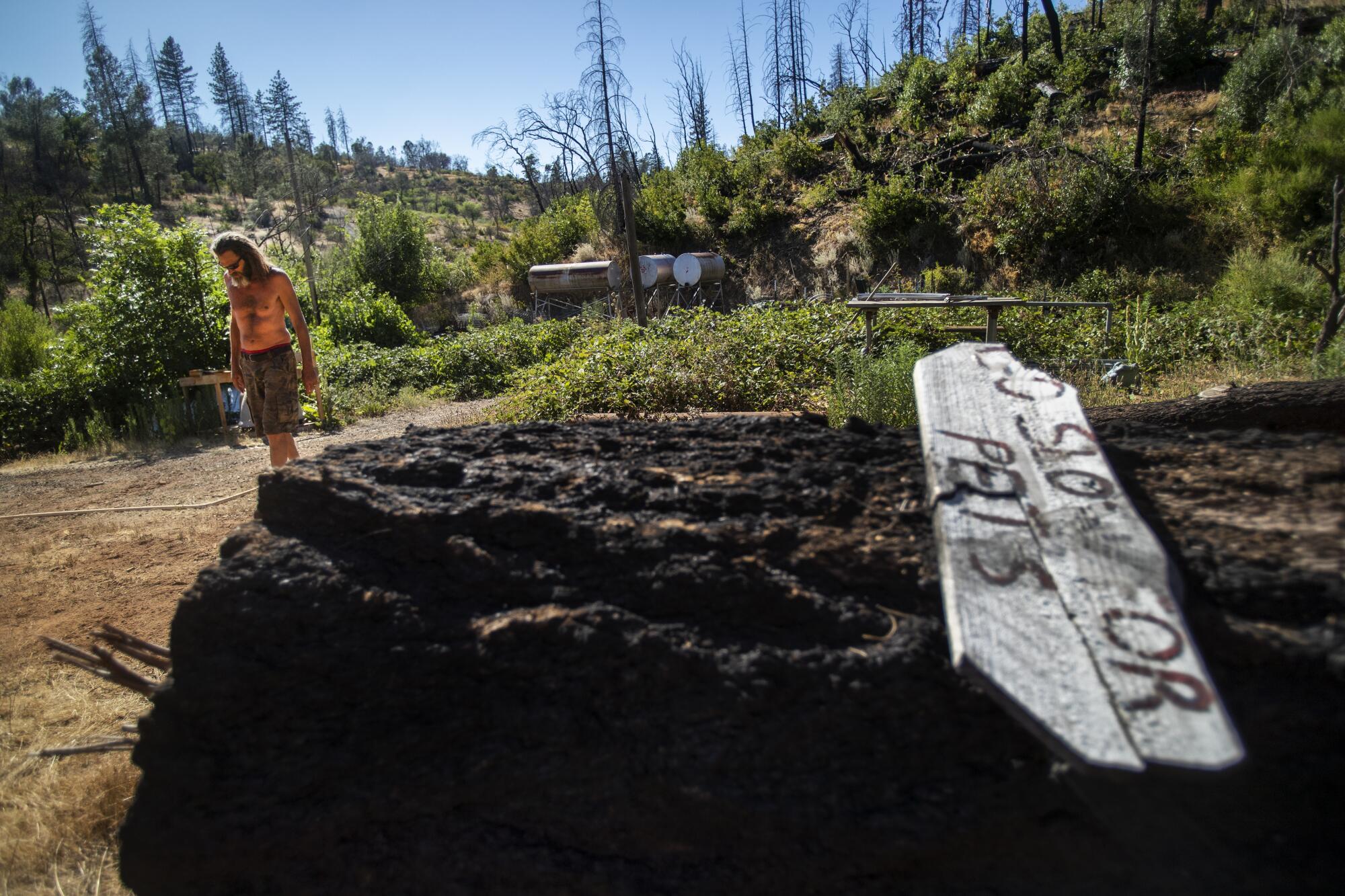
“I dove out of Jarbo Gap stark ass naked with my old lady in ’86 when someone lit that on fire. I just went and put a tent up in woods, set us up a camp and went back to work. And we rented a place and got back in the program, and we’ve always been able to do that until this fire.
“This fire, they came in and turned it into an $80,000 cleanup on an average property, permit fees for everything. Hire to have someone inspect your well, hire someone to inspect your septic.”
Like many on these finger buttes, Nimz suspects the county is trying to push out the poor to shore up the tax base.
“All these old-timers up here who have been up here 10, 20, 30 years, they’re paying minimal property taxes compared to someone who bought a year before. So as soon as all this property changes hands, boom. These folks down there at the county are making more money on bare land than they were with the guy who had been there for 20 years. That’s what’s been happening with this fire. A lot of people are, ‘I am out of here, the hell with this.’”
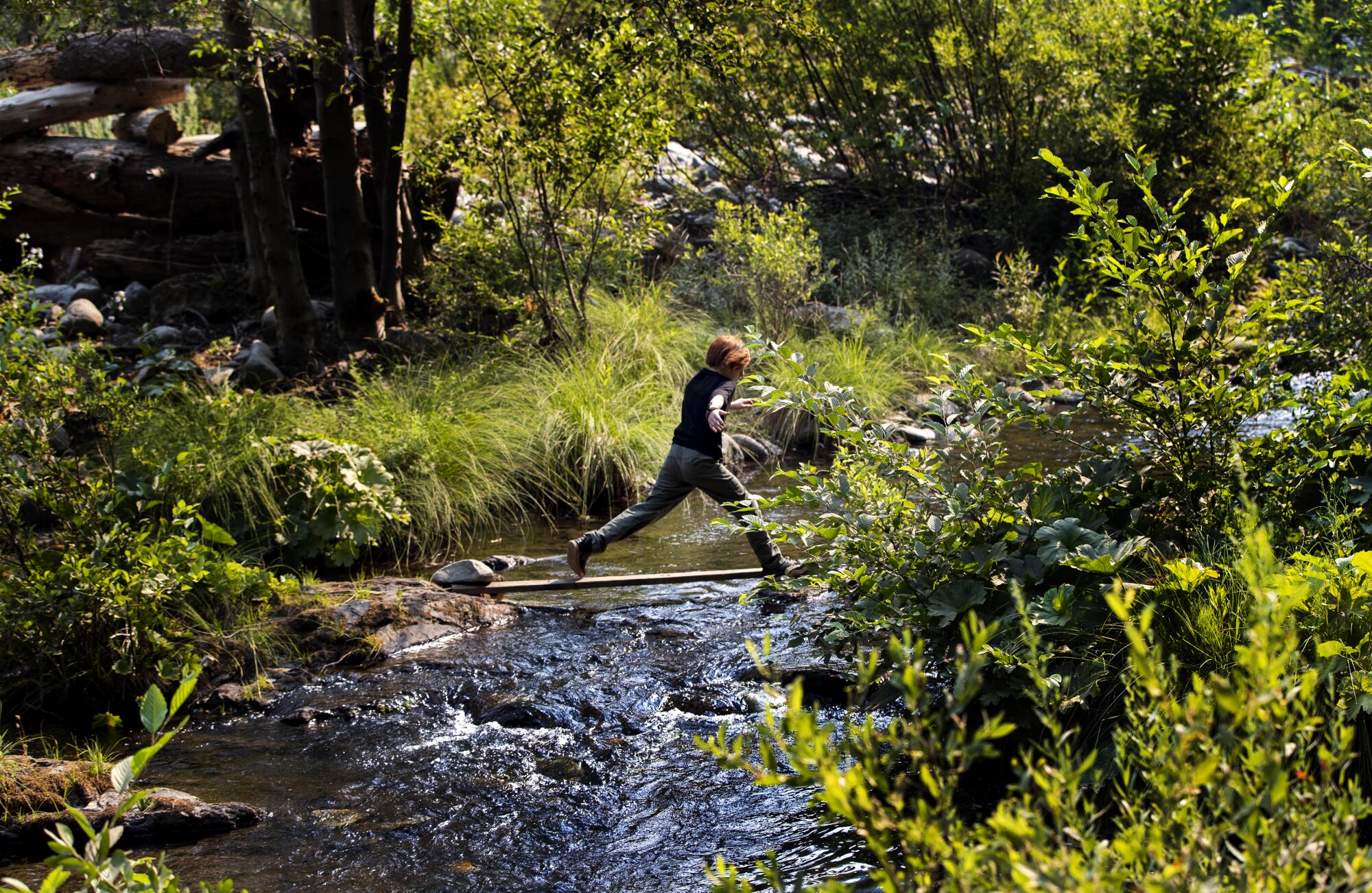
County officials say the tighter regulations are simply to protect people in future fires and that they are trying to be as humane as possible.
“I understand the delicate balance of people’s plight and also the homeowner next to them who calls me worried about their home value,” said Butte County Supervisor Doug Teeter, who represents the Paradise area.
He says some people rent out their burned properties with no hook-ups, which become dumps of old vehicles, appliances and junk.
He hopes the PG&E victims’ trust comes through and fire survivors get into permanent housing.
The town of Paradise has even stricter rules than the county, barring anyone from living in an RV that is not connected to electricity, water and a septic system.
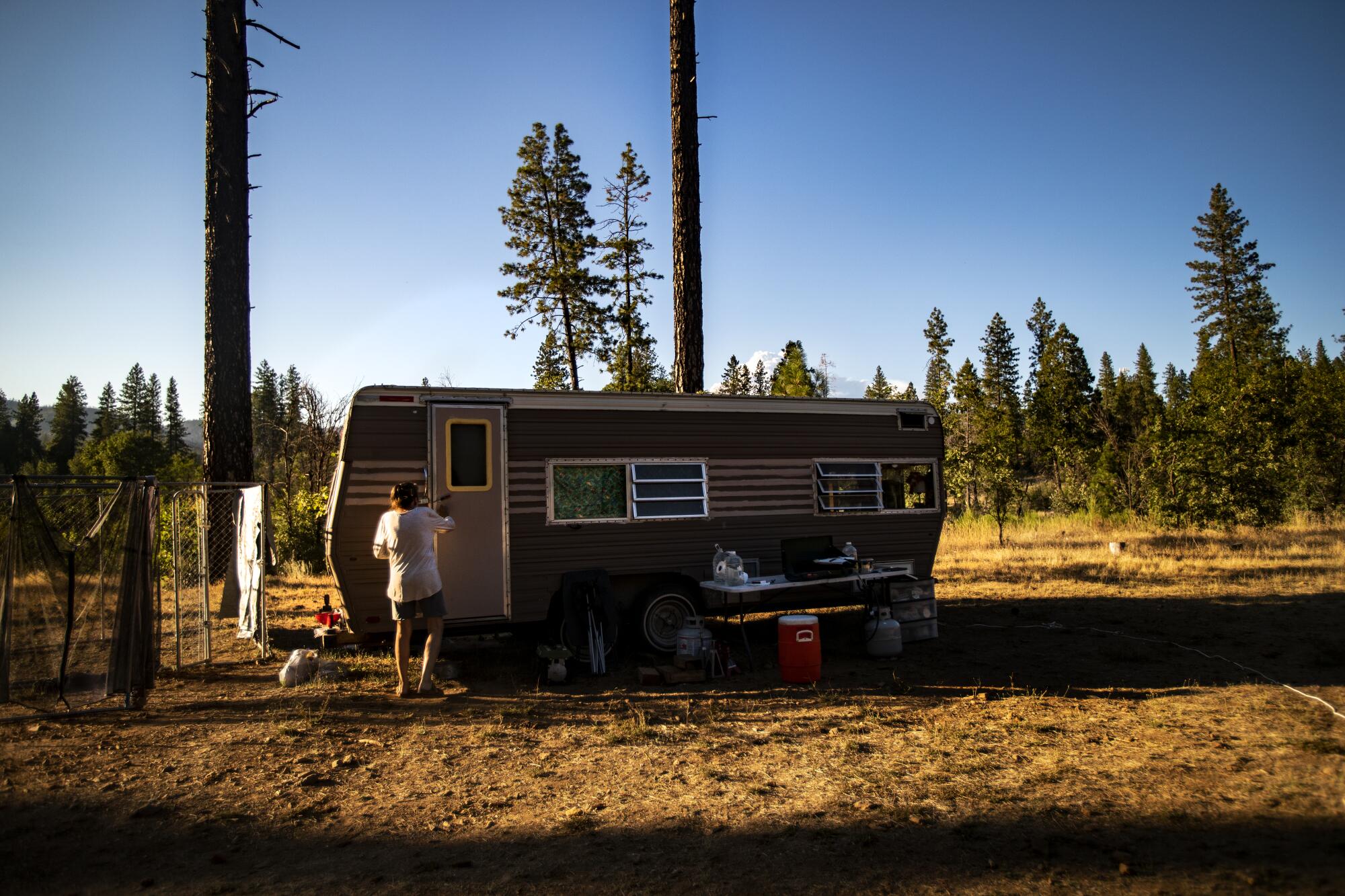
“Overall, we really want our residents back, but there are health and safety standards we are required to fulfill,” said Colette Curtis, director of recovery and economic development for the town.
She said the town was working with the Federal Emergency Management Agency and other state and federal agencies to find solutions for people “who don’t have the personal resources to rebuild.”
There are two other major factors at play in pushing people out: Fire insurance is very expensive in the unincorporated area, $8,000 to $10,000 a year for a modest home, residents say, and building supplies everywhere have tripled or more in cost. A piece of plywood can run $75.
Records from the California Department of Finance show that the population of unincorporated Butte County dropped from 80,518 before the Camp fire to 59,414 this year. Paradise went from 26,581 residents to 4,608 in 2020, with people slowly trickling back this year to push the population up to 6,046. Out of the 10,707 residences lost in town, 946 houses and 168 multifamily units have been rebuilt. In the unincorporated areas, 3,239 homes were destroyed, and 249 new ones have been completed.
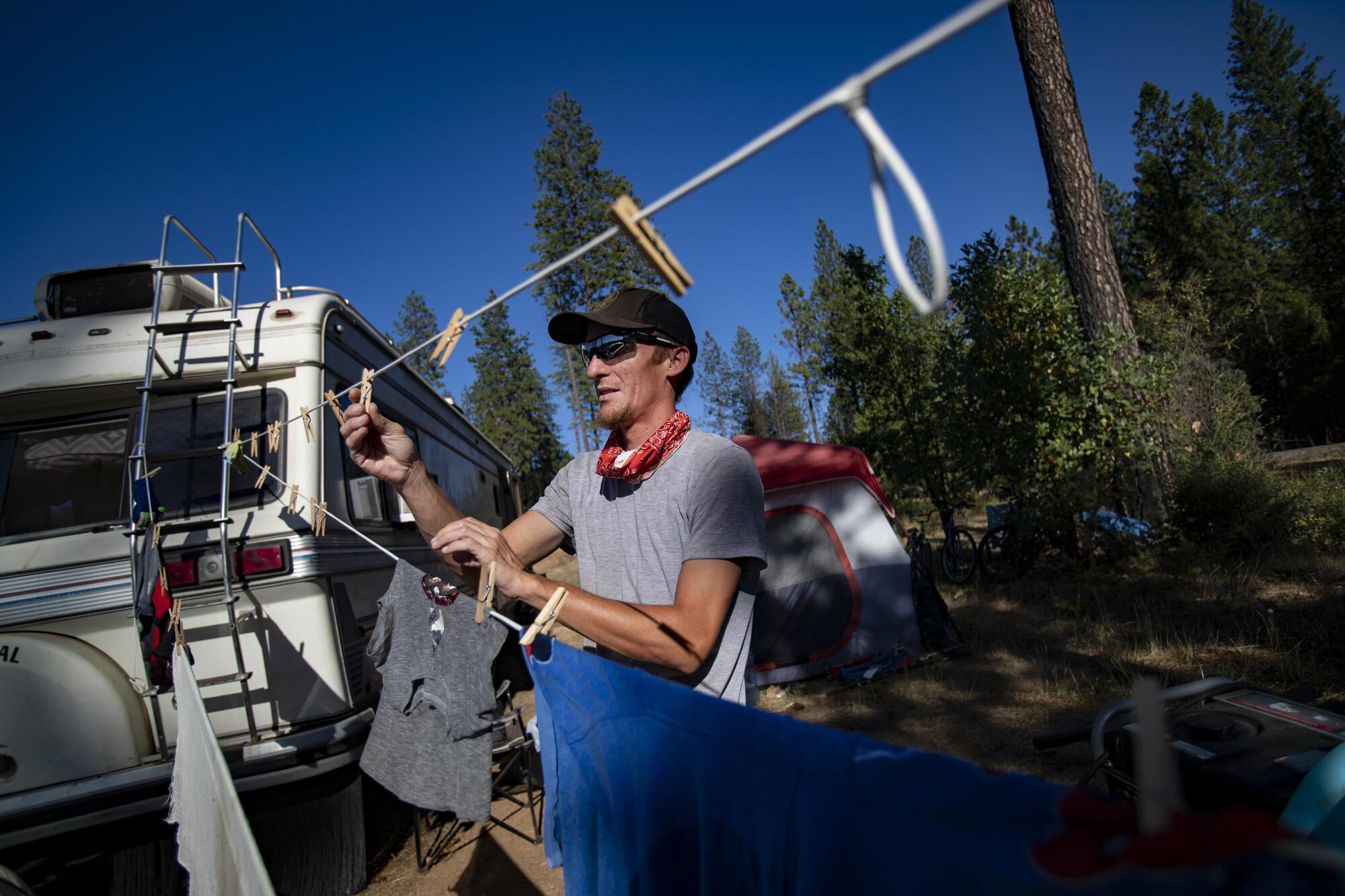
For every person who flees, there is another for whom the mountains and forests are an integral part of their life that they don’t want to abandon. They scoff at moving to Oroville or Sacramento, or Nevada, Texas or Idaho.
When the Camp fire roared onto the ridge in Paradise, Jedediah Anderson and his brother Lucas were down the hill heading to a plumbing job. Jedediah, 41, rented a home in Paradise packed with family: his wife, Kayla; their three sons; Lucas and his fiancee, Pamela, and their two kids, three dogs and a feisty green-winged macaw they rescued named King.
They all barely made it out of town alive.
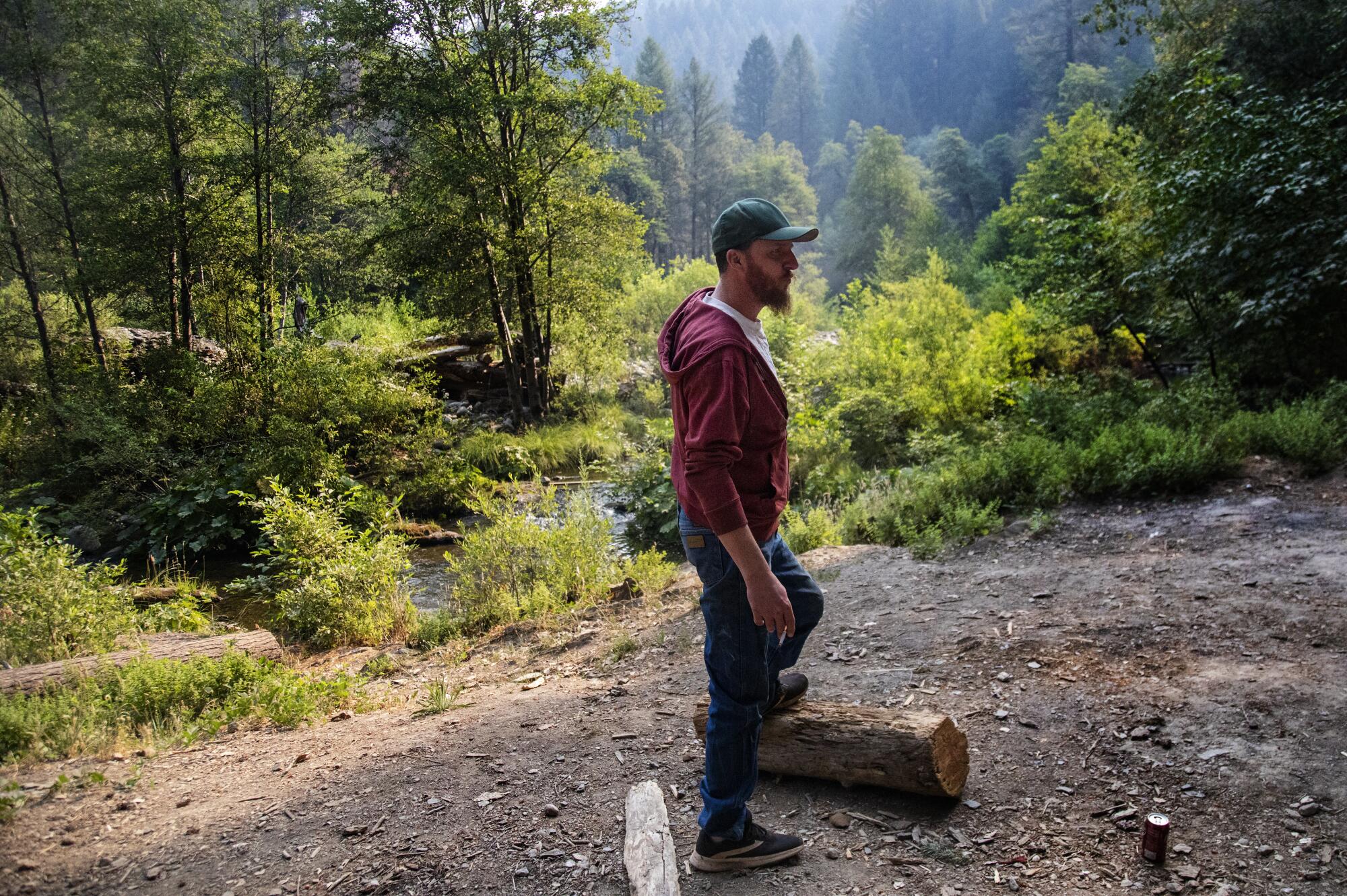
Lucas drove through front yards and plowed through mailboxes to get around jammed traffic. The smoke was so thick, he couldn’t see much past the hood. Jedediah’s truck ran out of gas, and they fled to a Walgreens. School buses were eventually sent to evacuate them. As they drove down the Skyway, fire raged on all sides. People were screaming that they were going to die, while King remained eerily chipper. “What’s up?” he cawed. “Hey-loooo.”
To women, he cooed, “Hey, baby.”
When they got to safety, Jedediah’s renter’s insurance found them lists of places to stay, and vowed it would pay the difference for anything above what they had been paying in Paradise for two years. But the options were scant: motel rooms or apartments way too small for a family of nine, with dogs and a macaw that liked to shriek at random and eat crown molding.
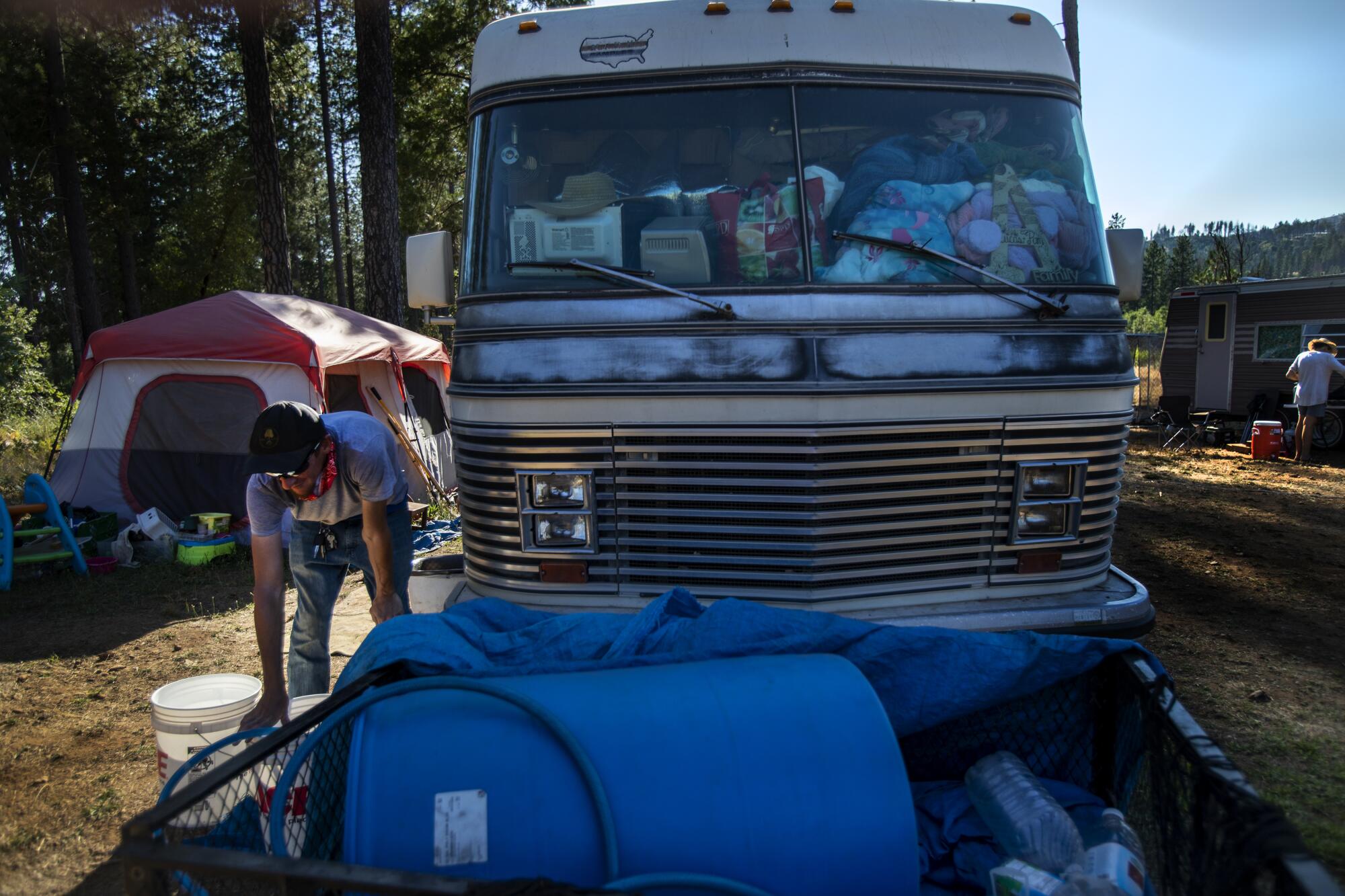
“They kept sending us options that weren’t going to work for us,” said Kayla, 30. “They got annoyed after four months, because after four months they want you to get into a house.”
Finally they found a big house in Las Molinas on nine acres of valley floor that rented for $5,000 a month. They paid $1,400, and the insurer covered the rest. Jedediah and Lucas, 34, continued to work for a plumbing company as long as they could, but local construction cratered, and they were laid off and left scrambling for work, mostly down in Grass Valley.
After a year in the house, the insurer was done paying.
“I don’t blame them,” Jedediah said.
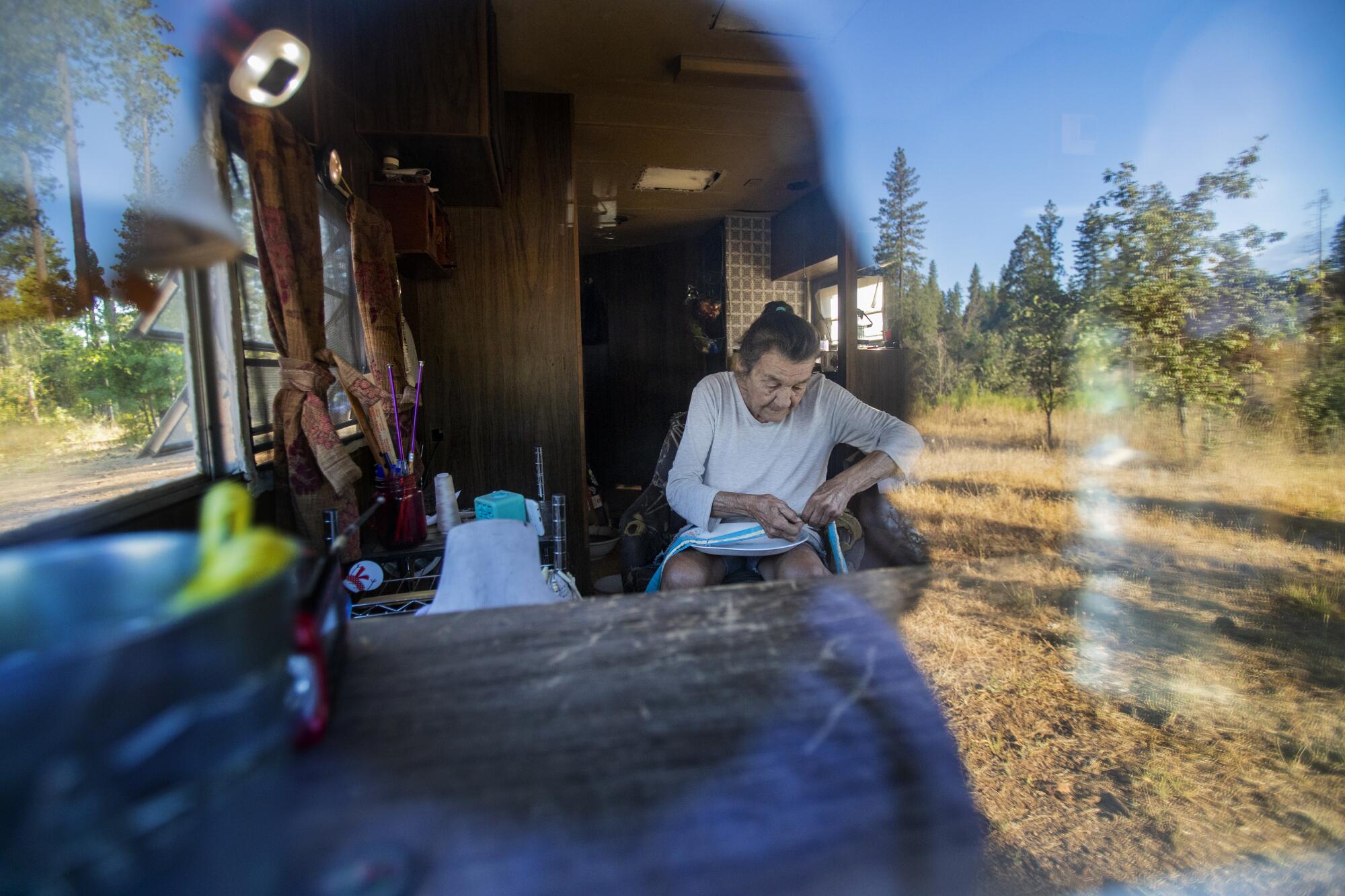
But they couldn’t find a single rental in Butte County.
Lucas, Pamela and their two young children parked an old motor home on a friend’s property in Paradise, until the city kicked them off. Then they parked in a church parking lot nearby in Magalia in exchange for volunteer work there.
Jedediah and Kayla bought a motor home for $7,000 from a man who promised they could live in it on his driveway in Magalia. They moved up there and hoped for the best, but the county started threatening to fine the owner and put a lien on his property. They drove the RV down to store it, a big metal albatross, in the valley for $65 a month until they could use it.
Then the rains came down hard. Jedediah decided to buy a bunch of camping gear at Walmart.
They drove deep into the foothills and found a hideaway in a copse of trees near Highway 32. They didn’t want to go to an official campground because they would have to move every 14 days, and Jedediah didn’t want rangers snooping around. They concealed their tents with gray tarps, and warmed up by a campfire at night, as King sauntered around blurting his playlist of phrases. Three days a week, they loaded the bird, the dogs and the boys — ages 13, 12 and 11 — into their Chevy Suburban and drove half an hour down to a McDonald’s so the boys could use the Wi-Fi for remote school sessions.
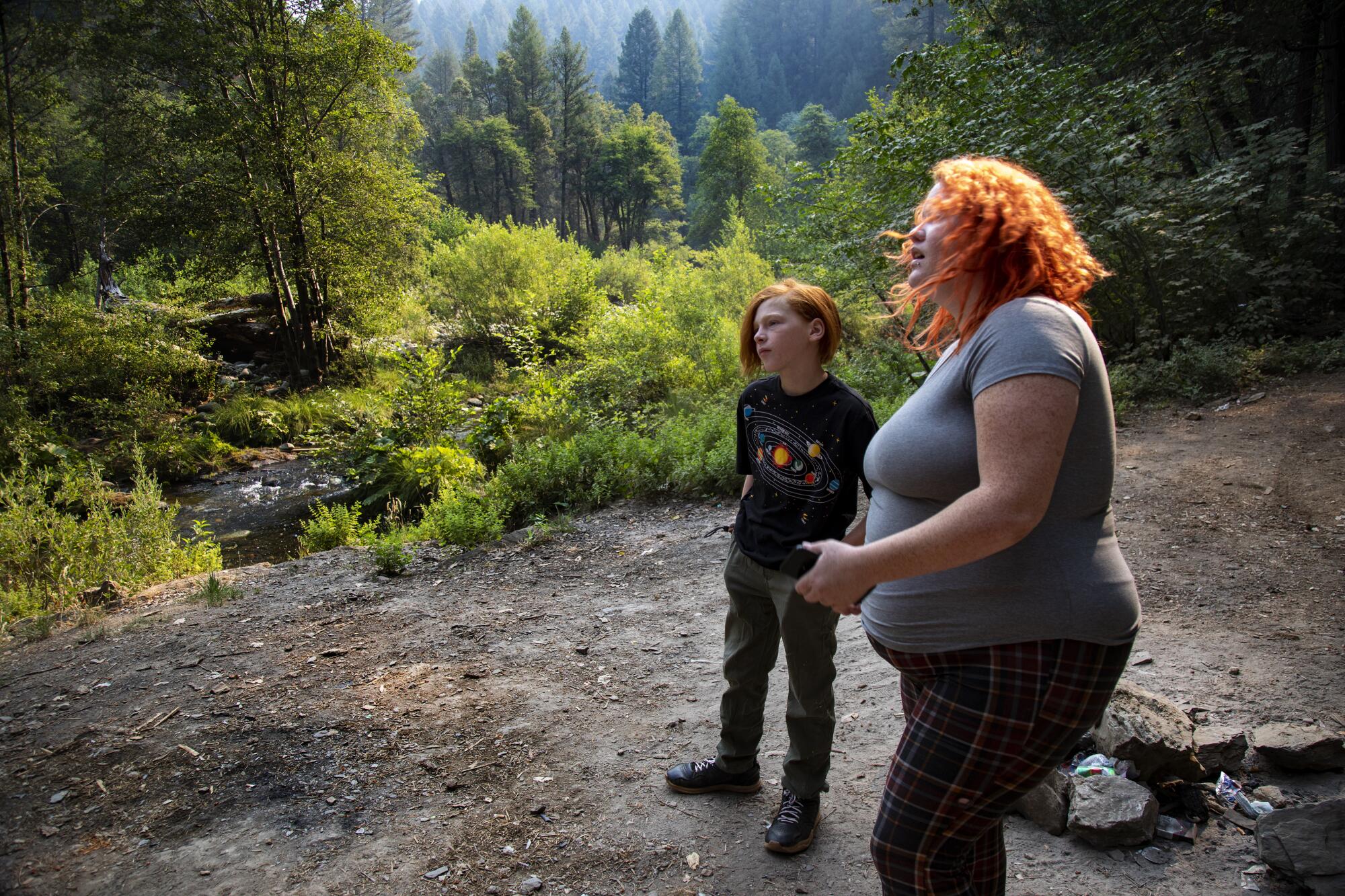
They pitched it as an adventure. Jedediah’s dad had owned mines all over California, and he grew up living in trailers and tents out in the wilds. He’d taken wilderness survival courses and loved trekking through the backcountry. But he knew Kayla never expected to live this way, although she didn’t complain. Once a week they found a motel room, cleaned up and tried to keep King quiet. They kept going to apartment showings, but they continually lost out to the multitude of other fire refugees competing for lodgings. And for every application and credit check by a landlord, their credit scores dropped.
The prospect of a large PG&E payout was all that kept them from losing hope.
On Feb. 8, a heavy snow fell, and one of their tents collapsed. They packed up and drove down below the snow line to a proper campsite in the Butte Creek Forks Recreation Area and hoped the rangers would take pity. They stayed there until July 1, when they moved into a house their old landlord owned in Magalia.
In May, Lucas and his family were told they couldn’t stay at the church any longer. Lucas was asking around, trying to decide his next move, when he heard the Lake Concow campground was quietly accepting fire refugees, mostly from Paradise, where the camping rules were the most strict. He drove his trailer over and towed his mother’s. He set up a tent to store his jackhammers, impact drills, grinders. He had brief spells of work that dried up, and was quickly running out of money.
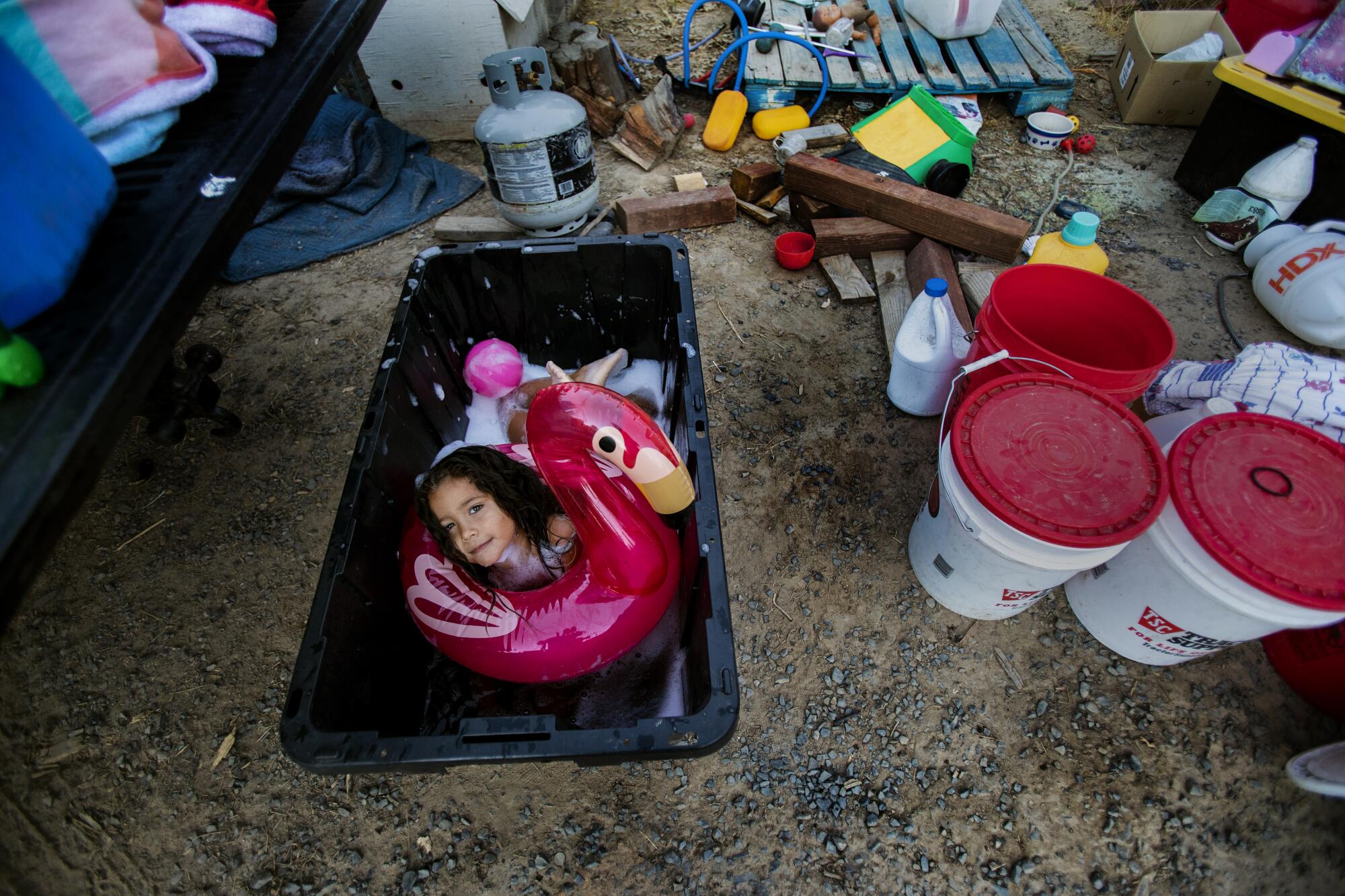
He and Pamela bathed the kids in a plastic children’s pool, washed their clothes in buckets and hung them on the line. But their relationship was suffering under the stress and tight confines, especially since the Dixie fire was starting to fray everyone’s nerves.
On a hot morning in late July, the smoke was thick and Pamela had taken the children to stay with her mom in Downieville. Lucas siphoned gas out of the RV tank to fill his Chevy Captiva to drive to the post office in Paradise to see if the child federal tax credit had arrived. Nothing had.
He cursed himself for wasting the gas.
At night, he put his phone against a coffee can in the back window of the RV — the only spot he could get a bar — to call his kids. Then he sat down and ate a can of chili from the Dollar Store.
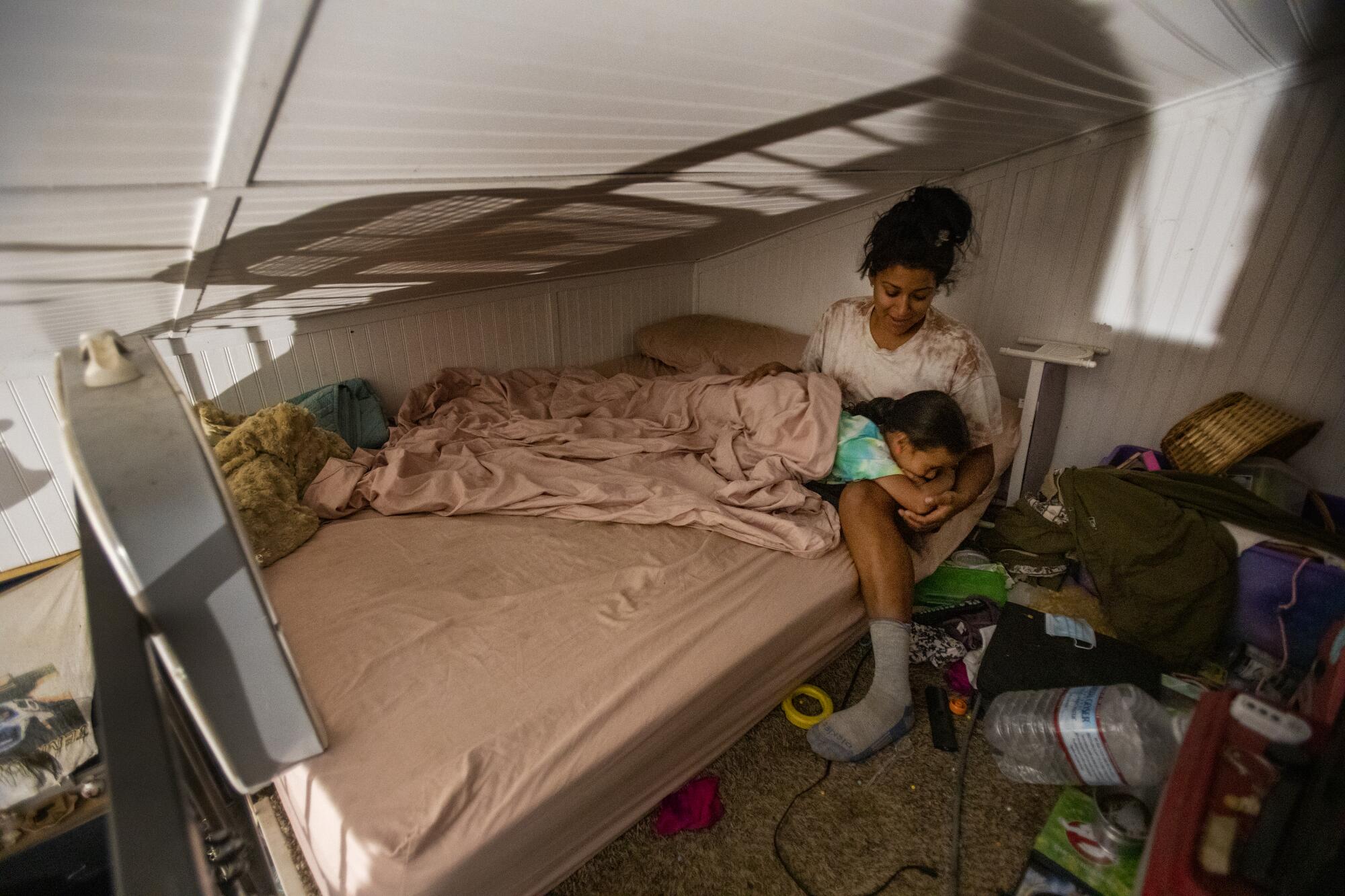
Up the road, Salinas washed River in a plastic bin. She was living off the grid like this before the Camp fire, with River’s father and a dream of owning a self-sustaining farm. But they split, and she’s been a nomad ever since, moving among motels, her mother’s house in Sacramento, a tent in the Concow campground. When she received a FEMA payout of $27,000, she found someone who would sell her a piece of land for exactly that.
When she goes to Sacramento, she gets antsy and starts to panic around all the people. She thrives in the solitude of these hills, finds beauty in the streaks of greenery coming back. She loves River’s fascination with a bug or a lizard. They swim in the creek.
She just feels the world is poised to take it all away.
“The majority,” she says, “well, almost every night, I go to bed crying.”
More to Read
Sign up for Essential California
The most important California stories and recommendations in your inbox every morning.
You may occasionally receive promotional content from the Los Angeles Times.















